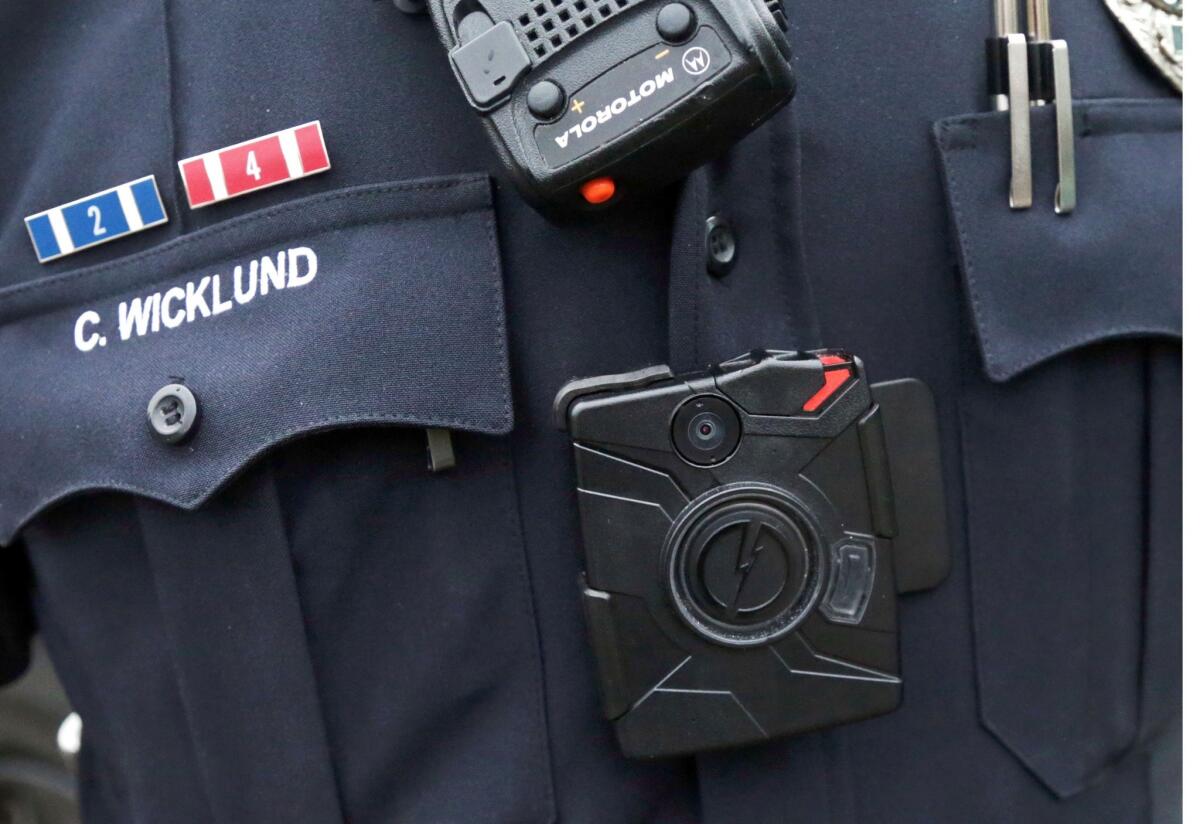After last-minute wrangling, Assembly panel advances body camera bills

- Share via
Reporting from Sacramento — An Assembly committee approved measures setting guidelines on the use of body-worn cameras by law enforcement, as well as the data captured by those cameras, on Thursday, despite lingering concerns over privacy and police access to such footage.
Body cameras have increasingly become a focal point in the debate over police use of force, after high-profile slayings in Ferguson, Mo., Baltimore, and other cities have set off nationwide protests.
The more contentious bill, by Assemblywoman Shirley Weber (D-San Diego), squeaked through the Assembly panel on consumer protection and privacy, after undergoing extensive changes in an unusual mid-committee negotiating session.
“The intensity of the emotion in the hearing today reflects the three dueling issues of privacy for the public, protections for people who encounter police and workplace concerns for the rank-and-file officers who keep our cities safe,” said Assemblyman Mike Gatto (D-Los Angeles), the committee chair.
Weber’s bill would set statewide guidelines for law enforcement agencies that use body-worn cameras, including barring officers from using footage for personal use and requiring that officers give notice to individuals that they are being recorded.
The bill, AB 66, also sought to restrict when an officer could review the camera footage following a shooting or other incident of serious use of force. Weber proposed making the footage available only after the officer made an initial statement, so that the statement could not be altered based on what was captured on film.
------------
For the Record
April 30, 3:24 p.m.: A previous version of this post referred to Bill AB 69. It is AB 66.
------------
Weber said such a restriction was necessary to ensure public trust. But law enforcement groups strongly opposed that provision, arguing that watching the footage greatly enhances the accuracy of officers’ initial reports.
The policy dispute led to a recess of the committee, while Weber, committee chair Mike Gatto (D-Los Angeles), police groups and other interested parties negotiated sweeping amendments to the measure.
The updated bill will include increased protections for informants and restrictions on camera use in private residences. It will also specify that all officers would be able to review footage prior to making a statement, except in cities such as Oakland that already have policies designating otherwise.
“We are optimistic that even with the compromises we made that there will be confidence restored,” Weber said.
“It’s significant for California. The optics are important,” she added. “As everybody else is having a number of challenges, it would be great for the state of California to come up with a policy that we all agree on.”
Six members, all Democrats, voted for the bill, while four Republicans and one Democrat declined to vote.
The panel also approved AB 69, a measure by Assemblyman Freddie Rodriguez (D-Pomona), which would establish guidelines for how body camera footage should be downloaded and stored.
Follow @melmason for more on California government and politics.
More to Read
Sign up for Essential California
The most important California stories and recommendations in your inbox every morning.
You may occasionally receive promotional content from the Los Angeles Times.














